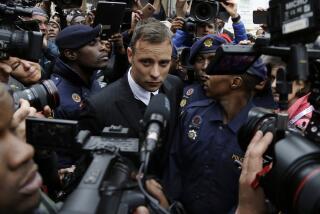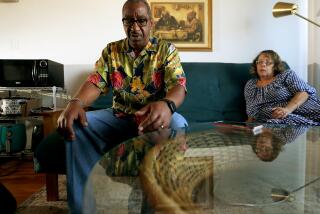Not Quite There Yet
- Share via
“We are pleased, but not yet satisfied,” was the reaction of Anglican Archbishop Desmond M. Tutu when South African President Frederik W. de Klerk said that he would unconditionally release eight black political prisoners. It is an appropriate reaction to De Klerk’s encouraging words, because so far they are just words.
De Klerk announced that he would order the release of eight political prisoners, including Walter Sisulu, a leader in the anti-apartheid movement second only to the still-imprisoned Nelson R. Mandela. There still is no mention of when the 71-year-old Mandela will be released from prison, where he has been confined for 25 years by the white minority government.
The South African president’s announcement was no doubt calculated to show his new administration in the best possible light as it enters new discussions about the future of the racially torn country. De Klerk met this week with Tutu and two other prominent clerics for pre-negotiation talks toward ending South Africa’s policy of apartheid. The prison-release announcement also was designed to help British Prime Minister Margaret Thatcher next week when she tries to stave off calls for further sanctions against South Africa at a meeting of Commonwealth leaders.
And while the announcement of an intention to release Sisulu and seven others has won international praise for De Klerk, he needs to say and do more to take the government’s position beyond good public relations.
As yet, there is no concrete talk of releasing Mandela, the leader most respected among the country’s 26 million disenfranchised black majority. And De Klerk seems to be waffling about the unconditional release of Sisulu and others; he left open the possibility that they could be placed under restrictions if they pose a threat to public order. That has a familiar and uncomfortable ring: Another Mandela compatriot, Govan Mbeki, was released unconditionally two years ago by former President Pieter W. Botha only to be ordered later not to engage in political activity.
De Klerk is inching in the right direction. He speaks of the need to engender trust between the government and black leaders so that the country can move toward full political rights for all citizens. Unconditional release of all political prisoners and an end to restrictions on political activity are sure ways to nourish trust so that the complete dismantling of apartheid can begin.
More to Read
Sign up for Essential California
The most important California stories and recommendations in your inbox every morning.
You may occasionally receive promotional content from the Los Angeles Times.













